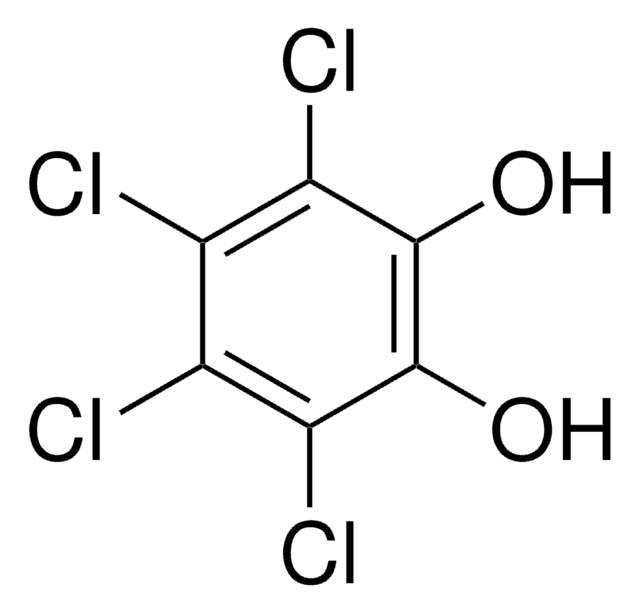49637
1-Methyl-3-propylimidazolium iodide
≥98.0% (HPLC)
Synonyme(s) :
MPII
Se connecterpour consulter vos tarifs contractuels et ceux de votre entreprise/organisme
About This Item
Formule empirique (notation de Hill):
C7H13IN2
Numéro CAS:
Poids moléculaire :
252.10
Numéro MDL:
Code UNSPSC :
12352100
ID de substance PubChem :
Nomenclature NACRES :
NA.22
Produits recommandés
Niveau de qualité
Pureté
≥98.0% (HPLC)
Impuretés
≤0.3% water
≤50 mg/kg chloride and bromide
Chaîne SMILES
[I-].CCC[n+]1ccn(C)c1
InChI
1S/C7H13N2.HI/c1-3-4-9-6-5-8(2)7-9;/h5-7H,3-4H2,1-2H3;1H/q+1;/p-1
Clé InChI
IVCMUVGRRDWTDK-UHFFFAOYSA-M
Catégories apparentées
Description générale
1-Methyl-3-propylimidazolium iodide can be prepared by reacting 1-methylimidazole and propyl iodide.
Application
MPII in combination with poly(vinylidenefluoride-co-hexafluoropropylene) (PVDF-HFP) forms an ionic liquid polymer gel electolyte, which can be used in dye-sensitized nanocrystalline titanium dioxide (TiO2) solar cells.
Non-aqueous electrolyte for dye-sensitized solar cells.
Code de la classe de stockage
10 - Combustible liquids
Classe de danger pour l'eau (WGK)
WGK 3
Point d'éclair (°F)
Not applicable
Point d'éclair (°C)
Not applicable
Équipement de protection individuelle
Eyeshields, Gloves
Faites votre choix parmi les versions les plus récentes :
Déjà en possession de ce produit ?
Retrouvez la documentation relative aux produits que vous avez récemment achetés dans la Bibliothèque de documents.
Les clients ont également consulté
Influence of various cations on redox behavior of I- and I 3- and comparison between KI complex with 18-crown-6 and 1, 2-dimethyl-3-propylimidazolium iodide in dye-sensitized solar cells.
Shi C, et al.
Electrochimica Acta, 50(13), 2597-2602 (2005)
High efficiency dye-sensitized nanocrystalline solar cells based on ionic liquid polymer gel electrolyte.
Wang P, et al.
Chemical Communications (Cambridge, England), 24, 2972-2973 (2002)
Mark W Kryman et al.
Langmuir : the ACS journal of surfaces and colloids, 32(6), 1521-1532 (2016-01-23)
A library of six selenorhodamine dyes (4-Se-9-Se) were synthesized, characterized, and evaluated as photosensitizers of TiO2 in dye-sensitized solar cells (DSSCs). The dyes were constructed around either a bis(julolidyl)- or bis(half-julolidyl)-modified selenoxanthylium core functionalized at the 9-position with a thienyl
Thomas Stergiopoulos et al.
Nanoscale research letters, 6(1), 307-307 (2011-06-30)
The presence of specific chemical additives in the redox electrolyte results in an efficient increase of the photovoltaic performance of dye-sensitized solar cells (DSCs). The most effective additives are 4-tert-butylpyridine (TBP), N-methylbenzimidazole (NMBI) and guanidinium thiocyanate (GuNCS) that are adsorbed
Peng Wang et al.
Chemical communications (Cambridge, England), (24), 2972-2973 (2003-01-23)
An ionic liquid polymer gel containing 1-methyl-3-propylimidazolium iodide (MPII) and poly(vinylidenefluoride-co-hexafluoropropylene) (PVDF-HFP) has been employed as quasi-solid-state electrolyte in dye-sensitized nanocrystalline TiO2 solar cells with an overall conversion efficiency of 5.3% at AM 1.5 illumination.
Notre équipe de scientifiques dispose d'une expérience dans tous les secteurs de la recherche, notamment en sciences de la vie, science des matériaux, synthèse chimique, chromatographie, analyse et dans de nombreux autres domaines..
Contacter notre Service technique











